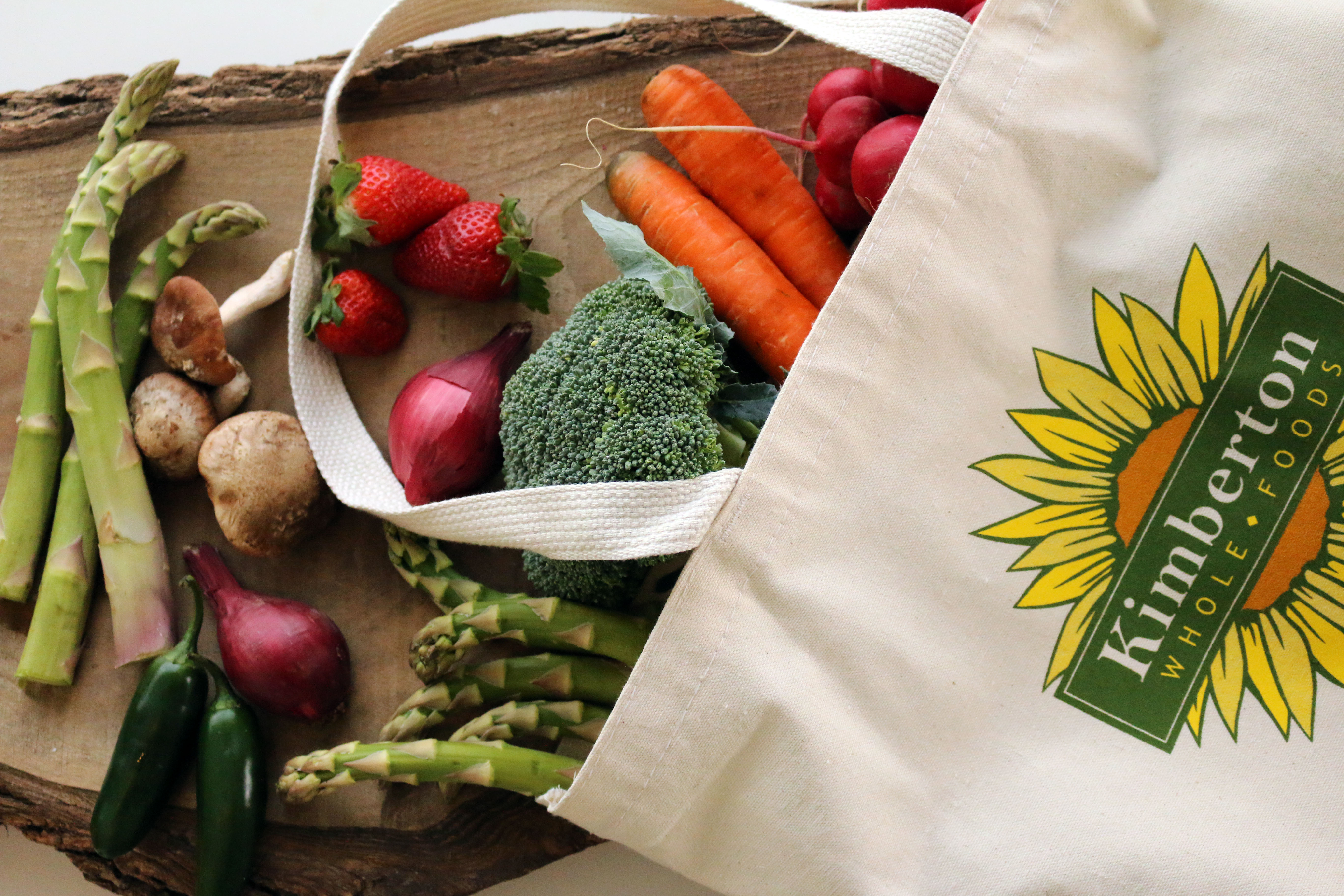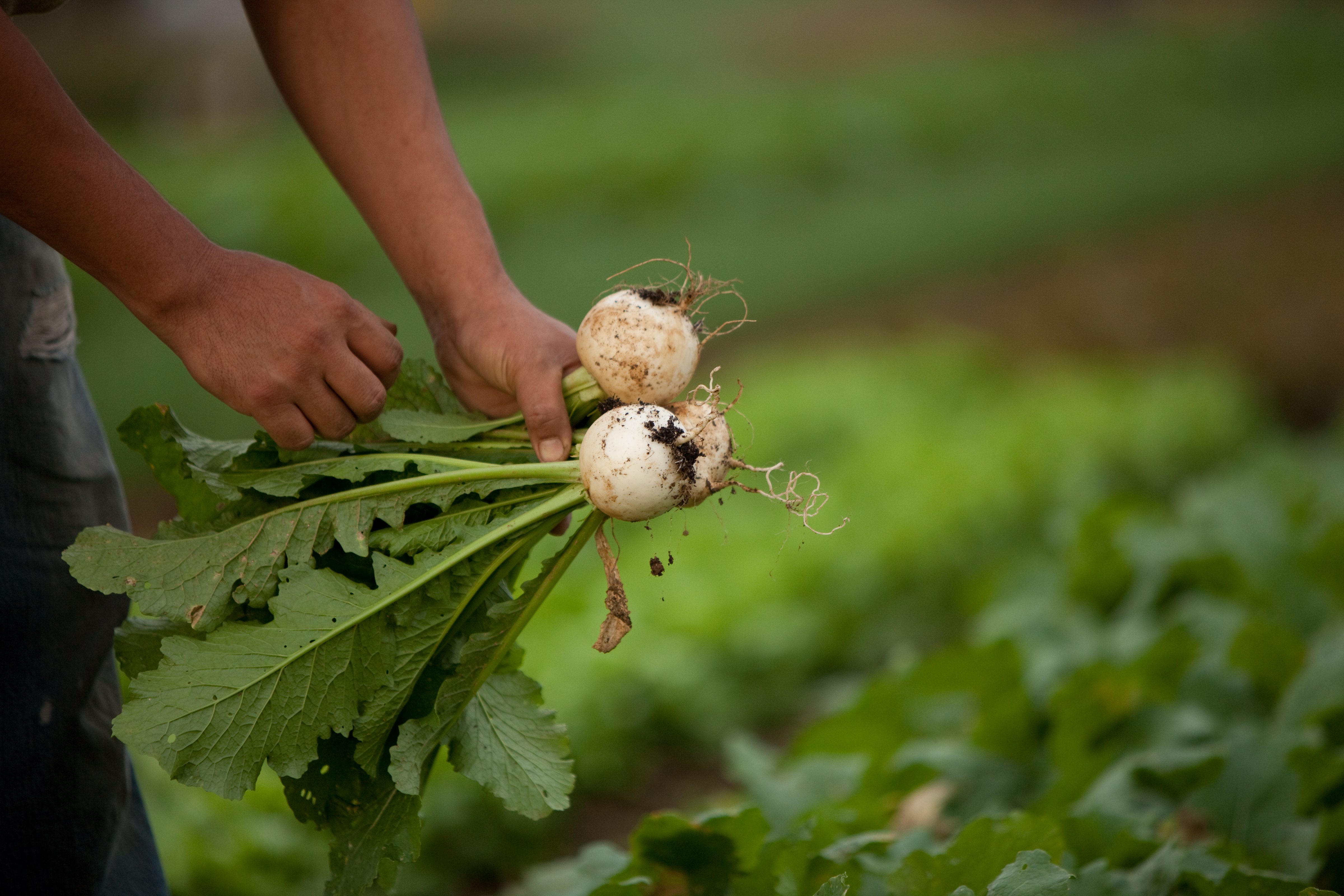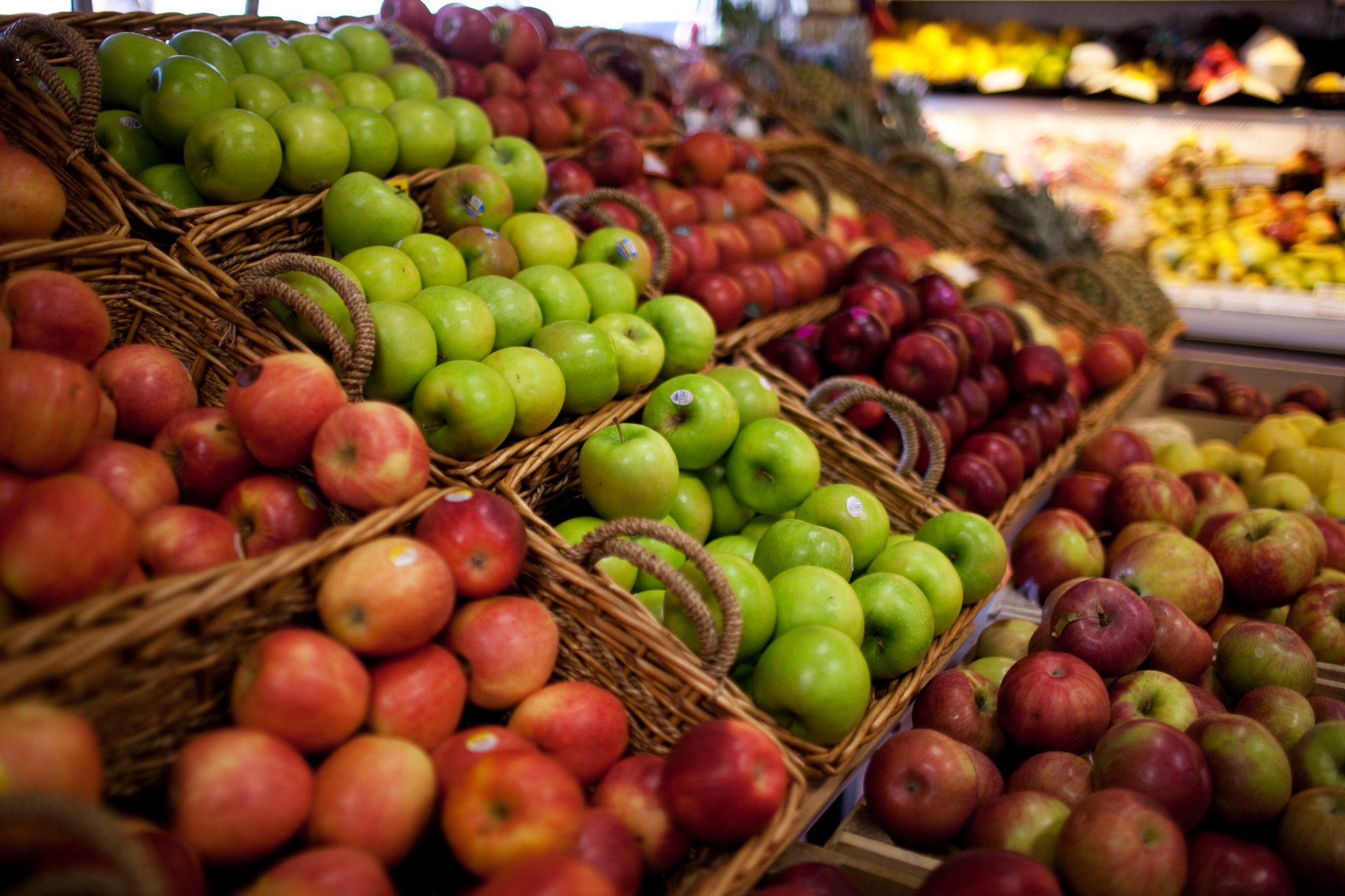It may feel like a tired topic to those of us who have been advocates for organic agriculture for many years, but the question of “why should I spend more money on organic?” still comes up again and again. The USDA Certified Organic label is meant to protect consumers and set a higher standard for production, yet we know that it is an imperfect system, and is not always attainable by local, sustainable farmers, even though they may be practicing organic methods. We believe that buying from a local farmer who will be transparent about their growing practices is the surest way to trust that your food is safe – but what happens when you want to purchase something that is not grown locally, or is out of season? The organic certification is the next best thing.
So, why buy organic? And why look for the USDA Certified Organic label? Here are 8 solid reasons.

#1 Avoid (Most) Synthetic Pesticides
Does “organic” always mean “healthier”? We say yes, not because of what nutrients they contain, but what synthetic pesticides and herbicides they don’t contain. Although it is true that some synthetic chemicals may be used in organic agriculture, this is still the lesser of two evils: don’t let naysayers suggest that this fact alone means that organic agriculture is no different than conventional. Additionally, in organic agriculture, the use of petroleum based fertilizers or sewage sludge are prohibited – sounds good to us!
#2 Avoid GMOs
By definition, certified organic produce cannot be genetically modified. Learn more about the GMO debate.
#3 Farmers are People, Too!
For every bit of pesticide residue that may end up on or in conventional produce, consider the workers who had to handle these toxic substances during their application. Not only are safety procedures often lacking, but federal regulations to protect individuals are lacking, also. Since many farm workers may be undocumented, it is speculated that many pesticide-related illnesses go unreported for fear of drawing attention. Don’t the people who grow our food deserve the same safety standards we wish for ourselves?

#4 Protect Our Water and Soil
Think about it: when pesticides and fertilizers are used, they don’t simply land right on the crop they are intended for, and stop there. Instead, they end up in our water and soil. Runoff may poison our lakes, rivers, and oceans. Many pesticides don’t break down and may remain in the water system for years. Although the USDA organic certification may not yet be the perfect example for sustainability, it is a step in the right direction, and prohibits some of the more harmful of these substances from being used. Organic agriculture also emphasises the use of cover crops, windbreaks, and other measures to lessen soil erosion.
#5 Protect Farm Animals and Wildlife
Organic policy is far from perfect when it comes to meat, however there are slightly higher standards for organic meat than conventional. Livestock must be raised without the use of antibiotics or growth hormones, and are fed all-organic feed. However, “organic” alone does not necessarily mean “humane”. For example, here you’ll find some of the different terminology used to describe how laying hens are handled and raised. It bears repeating: buying from local farmers whenever possible is the best policy for transparency in food production. When a local option is not readily available, labels such as USDA Organic can tell you a lot about how your food was grown and handled.
Since farming has such a wide reaching impact on our environment as a whole, consider that organic agriculture is kinder to wildlife, as well. Healthy farming practices mean a healthier planet for all.
#6 Protect Bees
The use of neonicotinoid seed coatings in conventional agriculture is rampant. Chris of Wild Creek Bee Farm explains, “Although approved by the EPA, they are deadly to our pollinators. Many people don’t realize that these chemicals aren’t biodegradable – they remain in the soil for years.” It should be noted that some natural (non-synthetic) alternatives to these seed coatings are equally detrimental to the bee population, so once again it is best to know your farmer and speak to them directly about their growing methods. At Kimberton Whole Foods, we do the work for you and vet our suppliers, seeking only the most responsibly-grown foods for our customers.
#7 Protect Our Future
Since pesticides can cross the placenta, women who are exposed to them will pass them onto their unborn children, which studies have linked to low birth weight, neurological problems, and birth defects. These pesticides have also been linked to fertility problems in adults. Cheap food now is an unfair trade-off for an unhealthy future generation.
#8 Because Your Dollars Count
You’ve likely heard it before, and it’s true: every time you make a purchase, you are voting with your dollars. Producers must respond to consumer needs and demands to stay in business, so it our responsibility as consumers to demand social responsibility from agribusiness. No one will deny that organics can come with a higher price tag (here are some of the reasons), which is why we encourage you to save by shopping our weekly organic produce sales.
Although organic certification through the USDA may not be perfection, we at KWF believe that it is a step in the right direction. Any type of farming, when done on a commercial and large scale, has the potential to become irresponsible and unsafe; this is why we care so deeply about supporting our local farmers.
For Kimberton Whole Foods, these labels are not about keeping up with trends, or clever marketing: we are fighting for the safety and sustainability of our food system.






